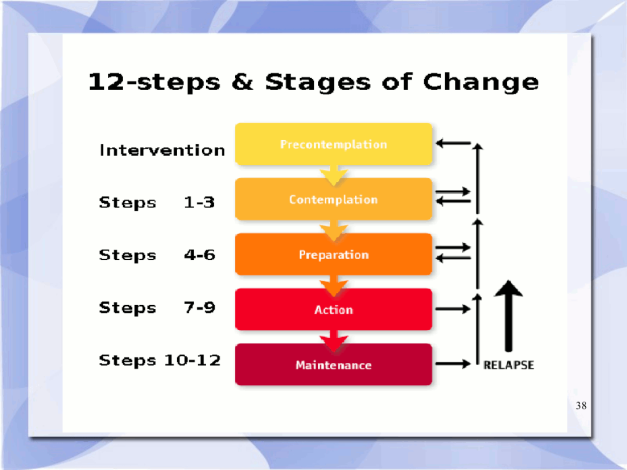Residential Rehab
Residential Rehab
|
Get Help Now! 800.815.3910 Available 24/7 The road to recovery starts here! Trusted, confidential help available 24/7. Speak with an addiction treatment specialist anytime. Please call us now at 800-815-3910! |

Residential Rehab
Popping Pills and other drug addiction stories
“Kris” was participating in a long-term residential rehab program, and was three months into a six-month scheduled stay. She had sustained an injury to her right knee, which required a surgical intervention.
The surgery, which was supposed to fix the problem, only made her life worse, as her mobility and the accompanying pain made routine movement a painful experience. She needed more and more of the prescription pain medication in order to manage her pain, and soon her life began to spiral out of control.
Soon, Kris was visiting several doctors to get pain medication prescriptions. While insurance would normally pay for a reasonable amount of the needed medicine, Kris had to come up with cleaver schemes to pay for hers.
She began to steal things from her own house, and even slid to the point where she robbed her own children.
She had been to some treatment for her knee, but the drug addiction had crept up behind her. She didn’t see it coming.
Although she knew what she was doing was wrong, it didn’t matter, because she would rationalize everything. Soon there was no reason to any of her actions, other than she needed the drugs to feel normal. Her marriage was beginning to suffer, but even that didn’t stop her. These are common occurrences in addiction, nothing matters but the drug.
She tried to STOP many times!
Kris said there was some attempt to curb her need for the prescription meds, but the treatment was ineffective no long-term management skills were learned. By the time she left town to check into long-term rehab, the husband was filing for divorce and telling their two children that “mommy didn’t love us anymore.” What might have made matters worse is the fact that the husband was a law enforcement officer, and certainly having a drug addict for a wife would not do his career any good. Still he tried to be supportive, but by this time the fabric of their marriage had been ripped apart.
12-Steps helped Kris
While working the 12 Step program, Kris rediscovered her spiritual side and began an intense study of her faith. She had been raised a Lutheran, but other than attending church at Christmas and Easter, there was no commitment by either Kris or her husband. She attended a Tuesday night Bible study at the treatment facility. The sessions were open forum and presided over by a local non0denominational pastor. The pastor had no set agenda, but tried to get to know each person and find out what was going on in their life.
It was in those studies that Kris began to see herself in the real light of day, and saw the destruction of her marriage and family relationships. She began to understand the power of other stories she heard about.
The 12 Step process calls for the addict to turn their will over to God, as they understand Him. During the next month an amazing transformation took place in Kris’s life, as Kris was no longer a victim of drug addiction, but took responsibility for her actions and started to really work the program with a new seriousness and energy. She began to bring others to the Bible studies and organized a weekly communion service for the residents.
Kris’s pain continued
Her knee pain persisted and one day the treatment staff decided to take her over to a local physician for examination. After his exam he quickly said he could help her and wrote a prescription.
“Oh no,” she said. “I’m an addict and I can’t have prescription pain medication. Is there something else you can offer me?”
The honesty must have thrown him off course. He paused for a few moments then what came out of his mouth astonished her.
“I have a 16 year-old son who has been smoking marijuana. I fear that he will try something else. Do you think you could talk to him for me?”
At that moment, a role reversal took place, as a helpless addict who wanted relief from pain, was suddenly an expert on drug addiction and someone who could help this doctor with his son. You can’t script this. Kris agreed to talk to the boy.
The next few weeks saw more positive change. Kris was more herself, more confident and managing her daily affairs well. The encounter with the doctor had put everything into perspective for her, as she realized that her experiences, no matter how destructive and painful, could be used to help somebody else. That doctor put his son’s life in her hands.
About a month after the doctor visit, Kris was released and went into another treatment facility closer to her home. When she left she had no idea what would happen to her marriage, if she would be allowed to see her kids, or if there was any shred of a normal life waiting for her, but through her experiences, she discovered herself. Addiction is never over but Kris’s experience should be a lesson learned for others.
Click here to return to Residential Rehab
Summary of Residential Rehab:
Residential Rehab can be useful to cut the addict off for using. This allows them to detox and begin to gain there self-esteem back.
Residential Rehab has many levels and can include a “sober-Living” facility, which is like a halfway house that enforces a drug-free lifestyle.
Residential Rehab can be expensive so do enough research before choose the correct one to avoid getting ripped off.
Residential Rehab many addicts will relapse after treatment but don’t give up, relapse is part of the disease and can also be part of the recovery process.
and Finally Remember:
“Ask and it will be given to you; seek and you will find; knock and the door will be opened to you. For everyone who asks receives; he who seeks finds; and to him who knocks, the door will be opened.”
– Matthew 7:7-8
Recent Articles
-
Drug Withdrawal
Oct 14, 17 08:32 AM
Drug Withdrawal can be both physical and psychological, because not all addictions are categorized as physical dependence. In general it can be nasty business.
-
Psychological Addiction
Oct 13, 17 09:33 AM
Psychological addiction is in the process category. This is interesting because some abuse of drugs, such as marijuana, may be more process than substance.
-
Need to quit Yaba?
Oct 12, 17 09:02 AM
I want to quit from YABA Addiction. Please help me.

** We’re also launching four new
classes which will help you learn how to use motivation, affirmation
and encouragement to end addiction in yourself or a loved one. Each
class will focus on an evidence-based concept, explaining how to illicit positive
change
in yourself or in someone you love.
We will teach you practical techniques that
research has shown to be effective for achieving change and successfully ending addiction.
We’ll begin offering these classes this September through Learn-It-Live (Learn-It-Live is easy to use teaching tool and you don’t need to download anything to use it). Click Register Now! below to join one of our classes. The registration process includes setting up an account, but you determine your screen name to protect your confidentiality.
Four new addiction classes:
 |
– Addiction 101, a FREE 60 minute course introducing key substance addiction recovery concepts. This seminar examines many aspects of drug addiction, including symptoms and treatment. It also introduces the Stages-of-Change as a building for recovery. It will be held on Monday November, 6 at 6:00pm central-time. |
Addiction 101 Register Now!
|
|
 |
– Intervention, introduces you to Change-Talk as an alternative to “tough-love”. Change-Talk is a method, which you can learn, to get an addict (including yourself) to move away from addiction and toward recovery. This is a 2-hour class that meets Thursday November 9, at 10:00 am central-time at a cost of |
Intervention
|
|
 |
– Change-Talk, is a building-block for addiction recovery. This course |
Change-Talk Register Now! |
|
 |
– Effective Conversations, explains how to use conversation to connect for recovery. Reflective listening and change-focused conversations often facilitate positive change and addiction recovery. This is a 2-hour class that will meet on Thursday, October 19 at 10:00 am central-time, at a cost of $10. |
Effective Conversations Register Now! |


